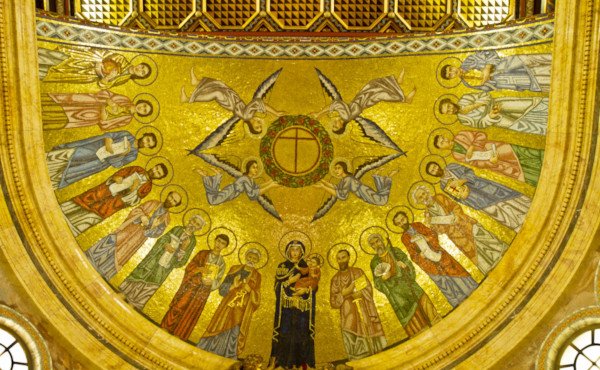Holy Thursday Homily
Our Lady of Peace, 18 April 2019
Ex 12:1-8.11-14; Ps 115; 1 Cor 11:23-26; Jn 13:1-15
1. In the first reading of the Mass, we have recalled the institution of the Jewish Passover, which commemorated the freeing of the people of Israel from slavery in Egypt. Centuries later, Jesus chose the days when this liberation was remembered to celebrate, during the Last Supper, his Passover in instituting the Eucharist. Saint Paul gives an account of this in the second reading. The words Christ pronounced that night, and that we priests repeat in each Mass, changed the bread and wine into his Body and Blood.“This is my body which is given for you … This cup is the new covenant in my blood” (1 Cor 11:24-5). What does all this have to do with our own lives? Isn’t it something distant, far removed from our own problems?
2. We are beginning the Paschal Triduum. You have come to Rome to take part, with greater intensity, in these three days that are the most important ones in the year for a Christian. The freeing of the people of Israel, under Moses’s guidance, was an image of what later the Passion, Death and Resurrection of Jesus would mean for all mankind. So it has a lot to do with each one of us. In the slavery imposed on the Jewish people we can see an image of the slavery of sin. And Israel's freedom foretold a new and higher freedom: the freedom of the children of God, which Christ’s grace attains for each one of us.
3. But we can ask ourselves another question: do I truly need to be freed? Don’t I usually do what I want? Saint Paul, who from his youth sought God by paths other than Christian ones, wrote: “I can will what is right, but I cannot do it. For I do not do the good I want, but the evil I do not want is what I do (Rom 7:18-19). It is the experience of the lack of strength to do all the good that needs to be done. Chesterton, with his typical British humor, said that the overwhelming evidence of human weakness shows that the action of sin is the part of Christian doctrine that can be proven even scientifically. We need Christ to definitively heal our own freedom. And it is on the Cross where He has attained for us the deepest liberation: the liberation from sin, which purifies our heart so that we can discover our true identity as God’s children.
4. The Eucharist “is the sacrifice of the Cross perpetuated down through the ages” (Enc. Ecclesia de Eucharistia, no. 11). At each Mass, whose institution we celebrate today, this sacrifice of salvation becomes present in a sacramental way. So the freedom that Christ won for us by his Passion, Death and Resurrection is not distant from us, neither in time nor geographically. Moreover, the Eucharist is already a pledge of eternal life. As Saint Josemaria said: “Receiving the Body and Blood of our Lord in communion is, in a certain sense, like loosening the bonds of earth and time, in order to be already with God in heaven (Conversations, no. 113).
5. We can experience the freedom that Christ won for us in the strength we are given especially through the sacraments. As a Father of the Church wrote many centuries ago, when the first Christians met to celebrate the Eucharist, amid fierce persecution, truly present there was “the sign of freedom” (Irenaeus of Lyon, Adversus Haereses, IV, 18, 2). Tonight, when visiting Jesus in the Blessed Sacrament in the churches of Rome, we can reflect: in the Eucharist is my true freedom.
On this night, when we also recall the institution of the priesthood and the washing of the apostles’ feet, let us ask our Mother Holy Mary to help us contemplate, marvel at, give thanks for and approach with faith and love our encounter with Jesus in the Eucharist. Amen.
